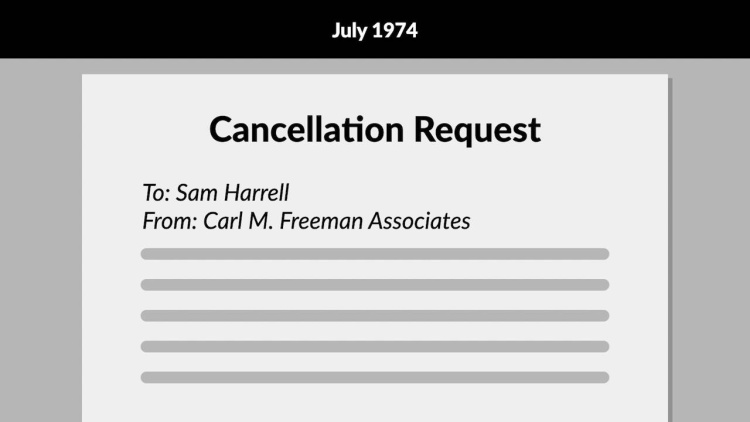Harrell v. Sea Colony, Inc.
Marylands Court of Special Appeals
370 A.2d 119 (1977)
- Written by Sarah Larkin, JD
Facts
Harrell (plaintiff) entered into a contract with Sea Colony, Inc. (Sea Colony) (defendant) to buy a condominium unit that Sea Colony would construct. Harrell paid a deposit on the unit and provided Sea Colony with a promissory note for the balance. The contract provided that Sea Colony would choose the attorney’s office at which closing would occur upon written notice to Harrell of substantial completion of the unit. In April, Sea Colony requested Harrell to choose which of two attorney’s offices he preferred the closing to take place, but Harrell did not respond. On May 28, Harrell requested to assign or cancel the contract but was told that he could not by an agent of Carl M. Freeman Associations, Inc. (Freeman) (defendant), an agent for Sea Colony. However, the agent sent Harrell a letter in July enclosing a cancellation-request form to be completed by Harrell. Harrell completed and returned the form but included a statement on the form that he was making the cancellation contingent upon his receipt of the deposit. In August, Sea Colony entered into an agreement to sell the unit to another party. Sea Colony later informed Harrell that they had accepted his cancellation of the contract but would keep his deposit. Sea Colony returned Harrell’s promissory note for the balance of the purchase price and enclosed Harrell’s completed cancellation-request form, but with the contingency regarding the deposit crossed out. On November 12, Harrell filed suit against Sea Colony and Freeman for an alleged anticipatory breach. Harrell claimed that Sea Colony and Freeman had repudiated the contract and sold the unit to another buyer. The trial court held that Harrell had unilaterally canceled the contract and awarded relief to Sea Colony and Freeman. Harrell appealed to the Maryland Court of Special Appeals.
Rule of Law
Issue
Holding and Reasoning (Melvin, J.)
What to do next…
Here's why 911,000 law students have relied on our case briefs:
- Written by law professors and practitioners, not other law students. 47,100 briefs, keyed to 997 casebooks. Top-notch customer support.
- The right amount of information, includes the facts, issues, rule of law, holding and reasoning, and any concurrences and dissents.
- Access in your classes, works on your mobile and tablet. Massive library of related video lessons and high quality multiple-choice questions.
- Easy to use, uniform format for every case brief. Written in plain English, not in legalese. Our briefs summarize and simplify; they don’t just repeat the court’s language.





